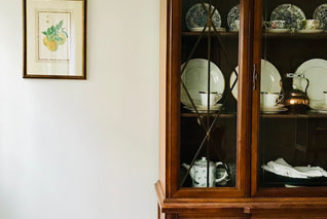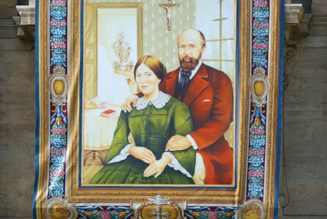 |
Suppose an anthropologist were asked, apart from the sound and fury of current politics, what were the signs of a dying culture, or a culture committing suicide? What might he respond, as following from human nature and from the terms of the question itself? What might he notice in our own?
Such a culture would be more preoccupied with death than with life; and this preoccupation might be manifest in a variety of ways. It would promote a right to die on your own terms, but no right to live, rather only a permission to live, provided that you possess certain qualities that people acknowledge as useful or as ushering you into the fold; and what these qualities are and how they shall be recognized will shift with political exigencies and sentiments. Life is no gift, but a mere thing, to be disposed of at will, like garbage. Nothing is sacred—not the body, not the soul, no place, no object, no name, no human persons, no history, no songs, no God.
Yet this will to die is neither brave nor generous. The bold young man who stands his ground in the field of battle is willing to die, not because he is weary of his life but because he is so full of life, and so moved by fellow feeling for his brothers in arms, that he can lay his life on the line. Soldiers who want to die have already lost. When an old or sick person says, “No more,” he gives his negative, as Chesterton said, to the whole universe. Mostly he runs toward death because he is afraid of suffering, which, in a dying culture, has lost its significance. Nothing is sacred. Such a person shudders before the great impersonal hospital-machines in which men are consigned to die; so he runs from the machine and leaps into the abyss, into nothingness.
The people in a dying culture, if they do not take their own lives, see no great beauty in human life, not even in what the blind poet Milton said he missed most of all: the “human face divine.” A recent article identified as the photograph of the past century a picture of a small baby boy in utero, at a mere eighteen weeks, but the author hastened to assure her readers that it would be quite wrong to use that photograph as an argument against a woman’s “reproductive rights.” Euphemisms, callous sentimentality, and abstractions greet the eye at the gates of death: Abtreibung Macht Frei. That the photograph showed a being of surpassing and mysterious beauty, a gift, an object of wonder, even a being made in the image of God, the author could not imagine, or would not confess. Nothing is sacred.
Such people, we might expect, will forget the soul and be obsessed with the body, but not the body as possessing any inherent meaning. They will work the body, punch the body up, pierce the body, plasticize the body, scrawl graffiti over the body, and in general reduce the body to a tool for hedonism, or for some poor attempt at self-expression in a world in which there is nothing of great importance to express. Nothing is sacred. Their art will not dwell lovingly upon the human face, or upon the natural grace and expressiveness of human postures. It will be flesh for flesh’s sake, and the face for flesh’s sake. They will speak of the body as a machine and talk glibly about its “performance.”
In sexual matters too, there will be no wonder, no sense of what the sexes are, no gratitude of men for women and women for men. The ingratitude, impatience, and unwillingness to suffer the shortcomings of the opposite sex will be manifest in willed sterility, assuming three forms. First, a hatred or fear of one’s own fertility, leading to voluntary sterilization; for the sterile is, anthropologically, next door to the dead. Second, a refusal to marry, or a complete lack of interest in marriage, whether the ordinary marriage of man and woman, or the spiritual marriage one enters as a religious; the wedding feast to which Jesus compares the kingdom of God has no appeal. Nothing is sacred. Third, an embrace of mock marriage by means of mock intercourse; the deliberate and sacrilegious perversion of your sexual powers, such as sowing the seed of life into a sewer, the place of waste and decay.
They who would crush, dismember, or fry in salt that astonishingly beautiful child in the womb surely will not scruple to invade the haven of a child’s blessed innocence, during the time when his sexual desires are dormant or latent, that long time that boys and girls need to learn who they are and what they are, destined to grow up to be confident husbands and fathers, wives and mothers. Jesus has hard words to say about those who would offend against the little ones, but, since nothing is sacred, the people of a dying culture will be eager to have children join them in corruption and meaningless hedonism, festooned as always with euphemism, like lipstick and false hair on a skull. A horrid drag queen instructing little boys on how to tuck their testicles into their bodies and bind them there—death, boasting of death.
The people of a dying culture produce almost no art worthy of the name. Boredom sits heavy upon the soul. Nothing is sacred. The Romantic poets of the nineteenth century, often residually Christian at best, believed that the impulse for great art and music and poetry must be divine. What inspires? They who lose the divine lose the human also. It is as Jesus says, that to them who seek the kingdom of God, all the good things of the earth will be given also. The converse is true: from those who have little, from those who seek only the things of earth, even that little which they have shall be taken from them. The art of the dying culture not only loses its excellence. Whole kinds of art disappear; no one cares for them anymore; no one cares to learn with great patience and many failures, or to appreciate, which requires patience also, or to preserve. Many of the skills the true craftsman required, often skills with no name, known in the hand or the eye or the ear, are forgotten. Artists and architects turn to the hideous, the brutal, and the inhuman.
The people of a dying culture not only smother their future in the womb. They murder their ancestors too. They look with envy upon the great men of their past, men who, like all men, were imperfect, but who built, and built not just for themselves but for their posterity. They sneer at those great men and enjoy “debunking” their legends. Nothing is sacred. Down come the statues in the public squares, because down they have already come in the hearts of men. Nor is it the particular man here or there who must be trod into the dust. The whole past of the people must do the same; perhaps even the whole past of mankind, not received as a gift but shrugged off as a burden. Utopian schemes abound, even while the decadent art of the age sees but vast networks of human misery to come. For utopian towers are cemented with hatred for what is.
The whole mood of the dying culture is gray. Acedia is its besetting sin, manifest in spiritual inaction, and in ceaseless work for work’s sake, or work for low aims. There is no mirth in its humor. Flippancy is its note, the laughter of the bored, the super-sophisticated, the worldling, the weary. Children do not fill the streets with their cheerful games and laughter. Churches are empty. The society’s basic institutions are weak—the family especially. Social trust is gone. Tradition, which is a form of social trust, the compact between the generations, is traduced or forgotten. Nothing is sacred.
The poet Dante shrewdly identifies the character of hell as loss of hope, that theological virtue that trusts in the promises of God. The dying culture may use the word “hope,” but no one believes it, as their failure even to replace themselves with children most dreadfully shows. Nothing is sacred. Optimism, grinning and gold-toothed, steps in to take the place of hope, holding forth not forgiveness, redemption, and new birth, but a merciless judgment against the past, and change, vague and undirected, some change, any change, as a sick person on a bed tosses and turns for relief that does not come. Why, the impatient and sickly are secretly afraid of hope, as they are afraid of faith and love. So they are ready to buy whatever the confidence man is peddling: we will be saved by technology or by some newfangled political machinery. Give us leave to feed and rut and fill up the empty hours as we please, but take away all liberty that makes demands upon us, the true liberty of a human soul struggling in grace to draw near to God.
Who can breathe life into such a thing, that it may become a living soul? God alone can, but the people prefer to believe the lie, that nothing is sacred, rather than to take up the hearty duties and gifts of life. May God breathe life into us whether we like it or not.
[Photo credit: Elijah Nouvelage/Getty Images News]
Join Our Telegram Group : Salvation & Prosperity








